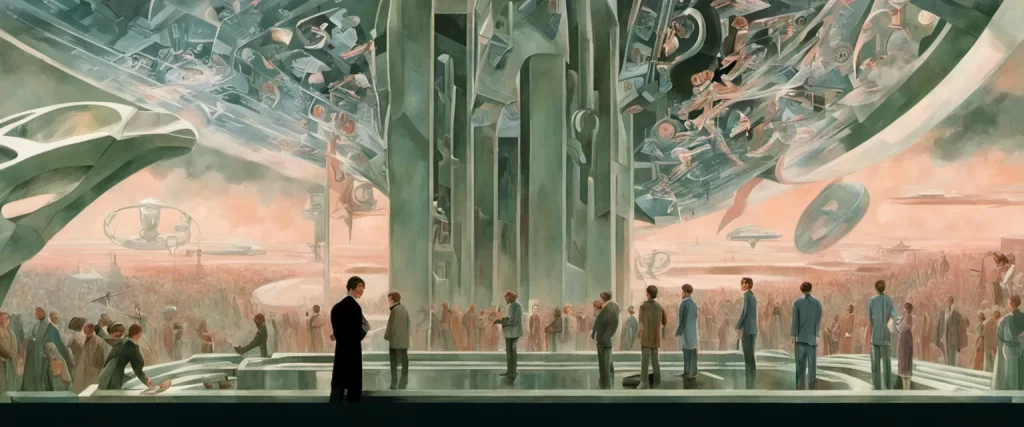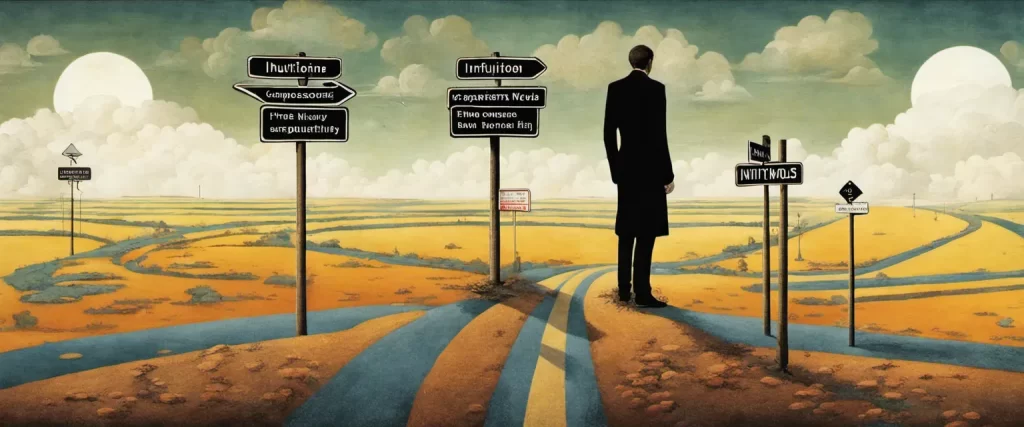
What is Society Culture
Society culture refers to the shared beliefs, values, customs, behaviors, and practices that characterize a particular society or social group. It encompasses the way people live, interact, communicate, and express themselves within a given community or society.
Society culture is often influenced by various factors, including historical events, geographical location, religion, language, arts, social institutions, technology, and cultural exchange. It provides a framework for individuals to understand their roles, identities, and relationships within society.
Culture evolves over time and can vary greatly between different societies and communities. It shapes people’s attitudes, behaviors, and perceptions, and plays a significant role in forming social norms, traditions, and customs.
Understanding society culture is essential for promoting social cohesion, as it helps individuals to appreciate and respect diversity, and builds a sense of belonging and identity within a community. It also plays a crucial role in shaping social hierarchies, power structures, and systems of governance within a society.
What Can We Get From Society Culture?
From society culture, we can gain a wide range of experiences, values, knowledge, and traditions that shape our identity and understanding of the world. Here are some notable things we can get from society culture:
1. Identity and Belonging: Society culture provides individuals with a sense of identity, as they learn about their heritage, history, language, and customs. It also offers a sense of belonging and community, allowing people to connect with others who share similar values and beliefs.
2. Knowledge and Education: Culture serves as a vehicle for transmitting knowledge and teaching individuals about various subjects like art, literature, history, science, and social norms. It helps in acquiring skills, wisdom, and a broader understanding of the world.
3. Socialization and Cooperation: Culture teaches us how to interact with others and live in society. It provides us with social norms, etiquette, and codes of conduct, which enable individuals to develop relationships, cooperate, and function effectively within a community.
4. Values and Ethics: Society culture shapes our moral compass, providing us with a framework of values, ethics, and principles that guide our behavior. These values can include concepts like honesty, respect, kindness, fairness, and justice.
5. Artistic and Creative Expression: Culture inspires and promotes artistic and creative expression, encompassing various forms such as music, dance, visual arts, literature, theater, and film. It allows for the exploration and communication of ideas, emotions, and perspectives.
6. Preservation of Heritage: Society culture helps preserve and celebrate the customs, traditions, and heritage of a community or group. It keeps alive the stories, rituals, celebrations, and historical events that are passed down from generation to generation.
7. Adaptation and Innovation: Culture is not static; it evolves and adapts to societal changes and influences. It encourages innovation and new ideas while still maintaining core values and traditions.
8. Entertainment and Recreation: Culture provides sources of entertainment and recreation, offering individuals opportunities for leisure activities, sports, festivals, music concerts, movies, and other forms of enjoyment.
Overall, society culture plays a crucial role in shaping who we are, how we perceive the world, how we interact with others, and how we find meaning and purpose in our lives.
Strategies in Learning Society Culture
1. Immersion: Immerse yourself in the society and culture you are interested in learning about. This can include visiting the country or region, attending cultural events, and engaging with locals.
2. Read and study: Read books, articles, and academic papers about the society and culture you want to learn about. This will deepen your knowledge and understanding.
3. Watch documentaries and films: Documentaries and films can provide insights into various aspects of a society’s culture, such as history, traditions, and social issues.
4. Listen to podcasts and interviews: Seek out podcasts and interviews with experts or individuals from the society and culture you are interested in. This can provide firsthand perspectives and personal stories.
5. Language learning: If the society and culture have a different language, learning the language can help you gain a deeper understanding and access to authentic resources.
6. Engage with locals: If possible, connect with locals through social media, language exchange programs, or online forums. Building relationships with people from the society and culture can provide valuable insights and firsthand experiences.
7. Participate in cultural exchange programs: Look for opportunities to participate in cultural exchange programs, where you can live and engage with locals in their society and culture.
8. Reflect and compare: Reflect on your own culture and compare it with the society and culture you are learning about. This can help you identify similarities, differences, and challenges in understanding a new culture.
9. Be open-minded and curious: Approach learning about a society and culture with an open mind and genuine curiosity. Be respectful and receptive to different customs, values, and beliefs.
10. Continual learning: Society and culture are dynamic and ever-evolving. Stay updated and continue learning through ongoing research, reading, and engaging with individuals from the culture.

Brave New World by Aldous Huxley
Summary
Brave New World” by Aldous Huxley is a dystopian novel set in a futuristic world where society is designed to be a utopia through the control of its citizens. The story revolves around several characters, primarily Bernard Marx, an outsider who feels disillusioned with the conformity and shallow nature of the society he lives in.
In this world, technology and genetic engineering have reached an advanced stage, with people being created in laboratories and assigned to specific roles in society. People are conditioned from birth through hypnopaedia (sleep-teaching), reinforced by societal norms, to believe in the principles of stability, uniformity, and hedonism. Any discontent is suppressed through the recreational drug called Soma.
Bernard has a romantic interest in Lenina Crowne, but his unconventional views make him the target of ridicule. He becomes involved in a trip to a reservation where people still live the way they did before the technological innovations. Bernard brings back a woman named Linda and her son to the civilized world, shocking the society with their appearance and behavior.
John, Linda’s son, grows up with a mix of civilized and primitive values. He rejects the shallow lifestyle of the society, yearning for authentic human connection and personal freedom. However, he is continuously objectified and paraded as a spectacle for others to view.
As tensions rise, John confronts the World Controller, Mustapha Mond, with his dissatisfaction, challenging the societal norms and the suppression of true emotions. Yet, rather than inspiring change, his rebellion is met with indifference and he becomes a symbol of curiosity.
Ultimately, “Brave New World” serves as a cautionary tale, exploring themes of consumerism, technology, conformity, and the dehumanizing effects of a society obsessed with control and superficial happiness. It raises important questions about the price of utopia and the essence of what it means to be human.
Reasons for Recommendation
1. Exploration of a dystopian society: Brave New World presents a dark and thought-provoking portrayal of a future society, providing readers with a cautionary tale. It delves into the complexities of a society that values stability, pleasure, and conformity over individuality and personal freedom.
2. Critique of consumerism: The book offers a scathing critique of consumer culture and the dehumanizing effects of a capitalist society. It examines how mass production, mechanization, and consumerism can erode genuine human connections and lead to a shallow and materialistic way of life.
3. Examination of social hierarchy: Brave New World illustrates the stratification of society based on an individual’s predetermined genetic makeup. This exploration of a caste system may prompt readers to analyze the impact of socioeconomic divisions on a society and consider the consequences of a lack of social mobility.
4. Analysis of conformity and identity: The novel raises questions about the nature of personal identity and individuality. It depicts a society where individuals are conditioned from birth to fulfill their predetermined roles, suppressing their desires, emotions, and uniqueness. This exploration can prompt readers to reflect on the importance of authentic self-expression and the dangers of conformity.
5. Exploration of technology and the control of information: Brave New World examines the role of technology in society. It portrays a world where technological advancements and genetic engineering are used to control and manipulate individuals, stifling their freedom and autonomy. This exploration invites readers to consider the ethical implications of advancing technologies and their potential impact on society.
6. Reflection on the concept of happiness: The book challenges the notion of happiness and prompts readers to question what constitutes a fulfilling and meaningful life. It depicts a society where pleasure, instant gratification, and the absence of pain are seen as the primary goals, while emotions such as love and human connection are devalued. This evaluation can lead readers to reflect on the complexities of happiness and the importance of emotional depth and human relationships.
7. Exploration of sexuality and sexual repression: Brave New World offers a nuanced exploration of sexuality in a society where promiscuity and sexual liberation are encouraged but meaningful emotional connections are discouraged. The book explores the impact of suppressing natural human desires and the potential consequences of a hyper-sexualized society.
Ultimately, Brave New World serves as a powerful critique of societal systems and cultural tendencies that can lead to the erosion of individuality, personal freedom, and authentic human experience. It invites readers to critically examine society’s culture, value systems, and the potential consequences when certain aspects of humanity are traded for a vision of stability and conformity.

Dreamland by Sam Quinones
Summary
“Dreamland” by Sam Quinones is a non-fiction book that explores the rise of opioid addiction in America. The book traces the origins of the opioid crisis, taking readers through various interconnected narratives.
Quinones starts by examining the emergence of black tar heroin in the small Mexican town of Xalisco. He highlights how a group of entrepreneurial drug dealers created a unique delivery system, with their customers calling a dedicated phone number to place their order, leading to the development of a thriving drug trade in the United States.
The author then shifts the focus to Portsmouth, Ohio, a once-prosperous Rust Belt town that has now become one of the epicenters of addiction. He interviews individuals who have been directly affected by the opioid crisis, shedding light on the devastating consequences it has had on families and communities.
Quinones also delves into the pharmaceutical industry’s role in fueling the epidemic. He examines the marketing efforts of Purdue Pharma, the creator of OxyContin, which aggressively promoted the drug as a safe and effective painkiller while downplaying its highly addictive nature. This, coupled with unscrupulous doctors overprescribing opioids, contributed to a wide-scale epidemic of addiction.
The book also explores the failures of various institutions, including law enforcement, in tackling the issue. Quinones explains how the illegal drug trade and the legal pharmaceutical industry are inherently linked, presenting a complex web of corruption and ineffectiveness in addressing the crisis.
Throughout “Dreamland,” Quinones weaves together personal stories, historical context, and extensive research to provide readers with a comprehensive understanding of the opioid epidemic. By dissecting the interplay between supply and demand, the book ultimately calls for a multifaceted approach involving prevention, treatment, and policy reforms to combat this ongoing crisis.
Reasons for Recommendation
1) Insight into the opioid epidemic: “Dreamland” provides a comprehensive and in-depth examination of the opioid epidemic that plagued American society for years. It delves into the various factors that contributed to the crisis, including societal norms, pharmaceutical marketing, and rising addiction rates. The book sheds light on the impact that the opioid crisis has had on individuals, families, and communities, making it an essential read for anyone interested in understanding this pressing societal issue.
2) Examination of societal factors: Quinones explores the deep-rooted cultural and societal factors that contributed to the rise of opioid addiction in the United States. He delves into how the American culture of pain management and the pursuit of instant gratification played a significant role in fueling this crisis. By dissecting societal norms and attitudes, “Dreamland” presents readers with a better understanding of how society as a whole contributed to the opioid epidemic.
3) Multifaceted approach: The book doesn’t simply focus on the drug epidemic; it also examines the impact of globalization on American communities. Quinones paints a vivid picture of how global economic changes, such as the influx of black tar heroin from Mexico, affected small-town America, leading to the devastating spread of addiction. By exploring these connections, “Dreamland” tackles both drug culture and broader societal shifts, providing readers with a more holistic perspective.
4) Human stories and empathy: “Dreamland” doesn’t just delve into statistics and numbers; it tells the stories of real people affected by the opioid epidemic. By introducing readers to diverse individuals, from addicted individuals to grieving families and healthcare workers, the book humanizes the crisis and fosters empathy. This human-centered approach offers a window into the experiences of those battling addiction and the wider impact on society, promoting a deeper understanding of the issue.
5) Solutions and hope: While “Dreamland” paints a grim picture of the opioid crisis, it also offers a glimmer of hope. Quinones examines the innovative approaches that communities and individuals have taken to combat and prevent addiction. By showcasing successful initiatives and programs, the book inspires readers with a sense of possibility and encourages them to rethink traditional approaches to addressing societal challenges.
By recommending “Dreamland” from the perspective of society and culture, readers can gain a comprehensive understanding of the opioid crisis, its contributing factors, and potential paths to recovery.
The Death of Expertise by Thomas M. Nichols
Summary
“The Death of Expertise: The Campaign Against Established Knowledge and Why it Matters” is a thought-provoking book written by Thomas M. Nichols. In this book, Nichols explores the societal trend of dismissing experts and the negative consequences of the erosion of expertise.
Nichols argues that in the age of information abundance and social media, there has been a growing disregard for experts and their authority. He discusses how this dismissal of expertise is not only misguided but also dangerous, as it undermines the foundations of democracy and decision-making. With the rise of populist movements and the democratization of information, everyone feels entitled to have an opinion on any given subject, regardless of their level of expertise or knowledge.
The author examines various factors that contribute to the decline of expertise, such as the decline of trust in institutions, the polarization of political ideologies, and the spread of misinformation. Nichols further highlights the adverse effects this phenomenon has on society, including the erosion of public debate, the decline in policy-making quality, and the detachment from reality.
“The Death of Expertise” ultimately calls for a reevaluation of our attitudes towards expertise, emphasizing the need to recognize the value of knowledge and the role of experts for well-informed decision-making. Nichols urges individuals to engage in intellectual humility, recognize the limitations of their own knowledge, and reestablish trust in experts.
Through a blend of historical context, sociopolitical analysis, and personal anecdotes, Nichols prompts readers to reflect on the challenges that come with living in a society where expertise is often undermined, providing a timely and thought-provoking analysis of a pressing societal issue.
Reasons for Recommendation
1. Critiques the erosion of trust in experts: The book delves into the current cultural atmosphere where expertise is devalued and experts are dismissed or distrusted. It explores how this distrust can harm society’s ability to make well-informed decisions and contribute to societal fragmentation.
2. Highlights the dangers of a knowledge-deficient society: Nichols argues that when society dismisses experts, it undermines the very foundations of democracy and the ability to govern effectively. The book prompts readers to reflect on the consequences of a society that prioritizes opinion over expertise.
3. Encourages critical thinking: By emphasizing the need for individuals to critically assess information and differentiate between reliable sources and manipulative narratives, the book instills a sense of responsibility in readers to engage in informed decision-making.
4. Analyzes the impact of the internet and social media: Nichols explores how the proliferation of online information and social media platforms has facilitated the spread of misinformation and given a platform to individuals who lack genuine expertise. This analysis offers valuable insights into the societal consequences of the digital age.
5. Advocates for a more respectful and informed public discourse: The Death of Expertise calls for a return to respectful deliberation and constructive dialogue with experts as a means to address complex societal issues. It emphasizes the importance of valuing diverse perspectives and informed opinions.
6. Raises awareness of the importance of expertise for progress: The book underscores the vital role that experts play in driving societal progress, innovation, and improvement. It reminds readers that true expertise is built upon years of careful study, practice, and experience, providing a strong case for why experts should be listened to and respected.
7. Promotes interdisciplinary collaboration: Nichols emphasizes the value of different fields of expertise and the necessity for experts from various disciplines to collaborate and exchange knowledge in order to tackle complex challenges. This perspective can contribute to a more holistic and comprehensive approach to problem-solving.
8. Encourages engagement with diverse viewpoints: The book prompts readers to analyze their own biases and encourages them to seek out multiple perspectives. By understanding the experiences and knowledge of others, society can foster a more inclusive and culturally diverse environment.
9. Sparks conversations about the role of education: The Death of Expertise prompts society to reflect on the role education plays in nurturing critical thinking, promoting intellectual humility, and instilling a respect for expertise. This can lead to discussions and potential improvements in educational systems and practices.
10. Provides insights for policymakers: The book offers valuable insights for policymakers on the importance of incorporating expert advice and scientific evidence into decision-making processes. It highlights the negative consequences of sidelining experts and encourages politicians to make informed choices for the betterment of society.